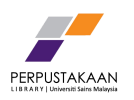- About Us
- How to use the library
- Academic & Research Support
- Library and The Community
open source
The Meaning of Open Source
Open source refers to a type of software that can be freely used, modified, and distributed by anyone. Unlike proprietary software, the source code of open source software is open and transparent, allowing anyone to see how it works and make improvements.
Freedom
Open source software provides users with the freedom to run, copy, distribute, study, change and improve the software.
Community
The open source community is made up of developers, users, and advocates who are passionate about creating and sharing software that is free to use and modify.
Collaboration
Open source software is often created collaboratively, with developers from all over the world contributing their time, expertise, and ideas to create better software for everyone to use.
The Power of Open Source Communities
Open source communities are made up of volunteers who are passionate about creating and sharing software that is free to use, modify and distribute. These communities help to create new technologies and tools that serve the needs of people around the world.
Global Reach
The open source community has members from all over the world, working together to create better technology for everyone.
Collaboration
Open source projects encourage collaboration between different teams, companies, and organizations, leading to more diverse and innovative software.
Access to Expertise
By participating in open source communities, developers can tap into the expertise of their peers, learn new skills and improve their work through feedback and collaboration.
Open Source Development Process
The development process of open source software is collaborative, iterative and transparent. Anyone can contribute to the development of open source software, and the process is coordinated through online platforms and communities.
Ideation
The ideation stage involves brainstorming and sharing ideas for new or improved software. This can happen on online forums or in-person meetups.
Development
Once an idea has been chosen, developers can start working on the software. The source code is openly available and contributors can work on different parts of the project at the same time.
Testing
Before software is released to the public, it goes through rigorous testing. Bugs and other issues are identified and resolved by the community.
Open Source Tools
Many powerful tools and applications are available as open source software. These tools are often developed collaboratively and are freely available for anyone to use and modify.

Development Tools
Tools like Eclipse and NetBeans are popular open source Integrated Development Environments (IDEs) used by developers around the world.

Databases
Open source databases like MySQL and PostgreSQL are widely used in web development and data analysis.

Web Servers
Web servers like Apache and Nginx are open source and power many of the websites that we visit every day.

Reference Management and Citations:
- Zotero: A free, open-source reference manager that helps you organize and cite your research materials.
- JabRef: An open-source bibliography reference manager for LaTeX users.
- BibTeX: A reference management software used with LaTeX documents.

Data Analysis and Statistics:
- R: An open-source programming language and software environment for statistical computing and data analysis.
- Python: A versatile open-source programming language with libraries like NumPy, SciPy, and pandas for data analysis.
- Jupyter: An open-source web application for creating and sharing documents that contain live code, equations, visualizations, and narrative text.

Data Visualization:
- Matplotlib: A 2D plotting library for Python.
- ggplot2: A data visualization package for R.
- D3.js: A JavaScript library for creating interactive data visualizations in web browsers.

Collaboration and Document Sharing:
- Nextcloud: An open-source, self-hosted file sync and share platform for secure file hosting and collaboration.
- Git and GitHub/GitLab: Version control systems for collaborative code and document management.

Text and Document Processing:
- LaTeX: A typesetting system often used for academic and scientific documents.
- LibreOffice: An open-source office suite that includes a word processor, spreadsheet software, and more.
- LyX: A document processor that combines the power and flexibility of LaTeX with an easy-to-use graphical interface.

Geographic Information System (GIS):
- QGIS: An open-source GIS software that allows you to visualize, analyze, and interpret geographic data.

Project Management:
- Redmine: An open-source project management and issue tracking system.
- Trello: While not open source, it offers a free tier and can be useful for project management and task tracking.

Data Collection and Surveys:
- Open Data Kit (ODK): An open-source set of tools for collecting, managing, and using data in resource-constrained environments.
- LimeSurvey: An open-source survey application for creating and conducting online surveys.

Collaborative Writing and Editing:
- Overleaf: An online LaTeX editor with real-time collaboration features (not open source but offers free access).
- Authorea: An open-source platform for collaborative research writing.

Lab Management:
- Labguru: A free version of this lab management software is available, which can help researchers with lab organization and data management.
The Benefits of Open Source
The benefits of open source software are numerous and wide-reaching. Here are just a few reasons why open source is the future of software development and collaboration.
Cost Savings
Open source software is free to use, which can result in significant cost savings for individuals and organizations.
Transparency
Open source software is transparent, meaning that anyone can see how it works and modify it to meet their specific needs.
Community Support
Open source communities offer support, feedback, and collaboration opportunities that help developers create better software.

Disclaimer
USM Library will not be responsible for any loss or damage caused by the use of any information obtained from this website.
Universiti Sains Malaysia Library © 2023
All Rights Reserved
- Last Modified: Wednesday 04 February 2026.
